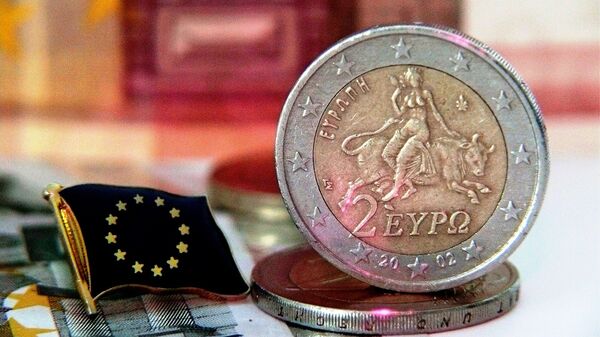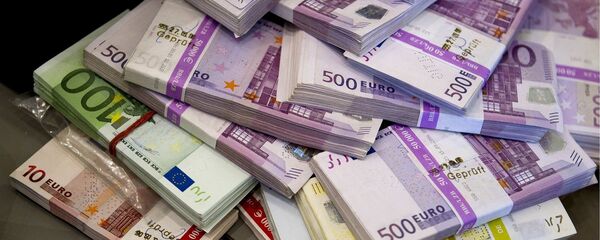According to the study, titled '20 Years of the Euro: Winners and Losers', Germany gained almost 2.1 trillion dollars between 1999 and 2017. France and Italy, however, saw a fall of 3.6 trillion and 4.3 trillion, accordingly.
Deutsche Welle reported that researchers Alessandro Gasparotti and Matthias Kullas used a 'synthetic control method' for their analysis, without elaborating. It showed that the new currency created an additional 23,000 euros per inhabitant in Germany over the last two decades. The report listed a lack of international competitiveness as one of the main reasons for the drop in prosperity elsewhere.
Radio Sputnik discussed the study of the effects of the introduction of the euro with Nafis Alam, Associate Professor of Finance at the University of Reading Malaysia's Henley Business School.
Sputnik: How did Germany and the Netherlands benefit from the euro while other countries didn't?
Nafis Alam: It's not a recent thing, you have to go back to the last decade for the whole issue behind it. In fact, if we look at that, Germany was one of the earlier countries that was having wage restraints.. and they had a very competitive devaluation of the deutschmark, which helped them gain on this. So this did not happen overnight, that has been building up for the past 10 years.
READ MORE: Weaker Euro Disproportionately Benefits Export-Driven German Economy — Lecturer
Sputnik: Professor, according to the report, international competitiveness was one of the main reasons for the drop in prosperity among other countries, what role did the introduction of the euro play here?
Nafis Alam: If you go back to individual currency strength, Germany always had more to gain because they had a superior advantage over currency devaluation with respect to the euro. From the early days of the introduction of the euro, Germany always got more positive balancing of their currency evaluation with respect to the rest of the countries in the euro.
READ MORE: People in Many EU States Think Euro Responsible for Weak Economic Growth — Prof
It all comes down to the bargaining power of the country, how much they wanted to initially look at the exchange rate with the initial currency at the time of the introduction. So it's all building up from the introduction of the euro from the beginning.
Sputnik: The report also says that the devaluation of currencies serves as a universal tool to make exports cheaper; is this indeed so and how does it affect taxpayers and other sectors of the economy?
Sputnik: Professor, if all other countries were able to devalue their currencies what consequences could this lead to?
Nafis Alam: If you're talking about devaluation with respect to the euro, it again goes back to the same mechanism of the actual exchange rate of the home currency with the euro. It will be very difficult to go back and strategize devaluation as in the previous time, but given the current state, the economic health of the country will come into play, even though Germany has been going through a recession.
In the recent time their expert has not suffered that much, but given that there are going to be some concerns with US having some relationship with trade negotiations with Germany that can have a negative impact on the performance of Germany. I have looked at both, but again, I'm not too sure what other factors because the report doesn't give too much detail about controlling for all other factors, it only talks about the prosperity of the euro for the overall nation, this is very, very controlled calculation on that, less information given to that.
The views and opinions expressed by the speaker do not necessarily reflect those of Sputnik.





